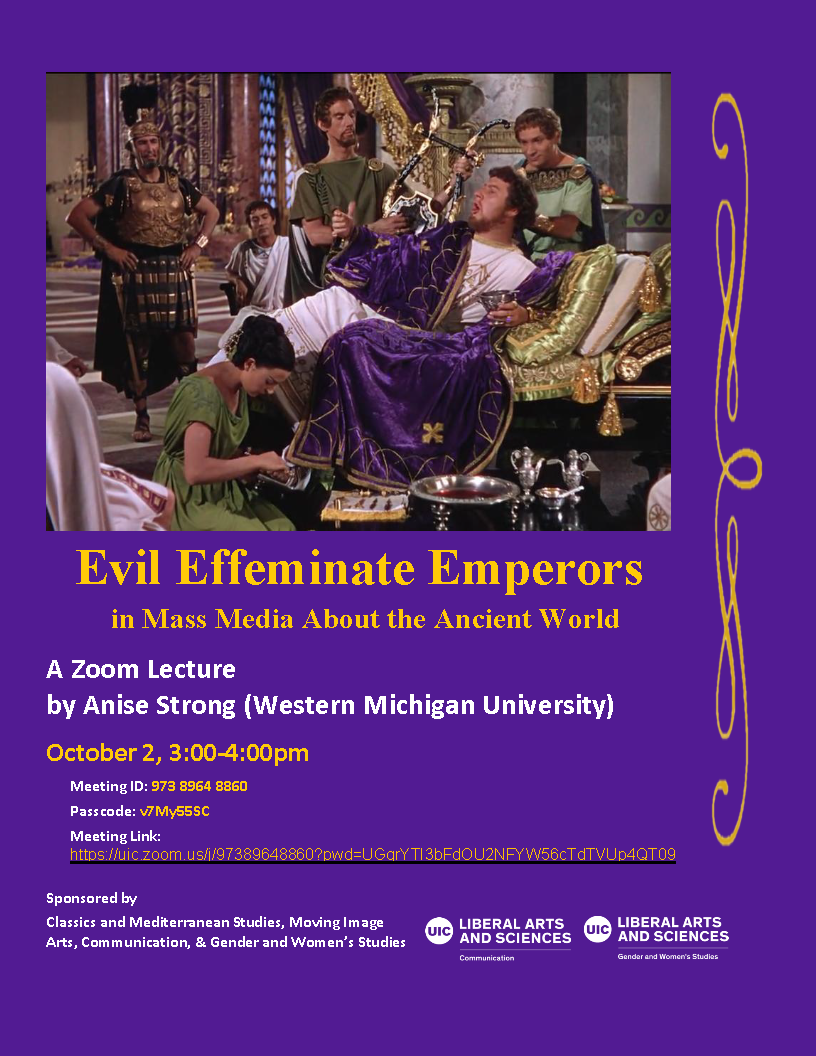Evil Effeminate Emperors in Mass Media About the Ancient World
October 2, 2020
3:00 PM - 4:30 PM

This lecture explores the ways that villainous male characters in mass media about the ancient world perform masculinity in unconventional, vilified, and often stereotypically homosexual fashions, as opposed to the traditionally virile, heterosexual, and militarily-focused masculinity of more heroic protagonists. This queering of villains, most typically “wicked” Roman emperors like Nero in the 1951 film Quo Vadis or Commodus in the 2000 film Gladiator, serves to distance the presumed straight male audience from these characters. More importantly and consistently, however, these representations also perpetuate the modern trope of imperialist Romans as debauched, corrupt, and weakened by their conquests. By associating modern gay stereotypes, such as the wearing of makeup, typically feminine clothes, exaggeratedly mincing walks, artistic predilections, and high-pitched voices, with frequently villainous or morally ambiguous characters, these films and television shows also delineate a very narrow definition of Roman heroism and manliness that reflects contemporaneous conservative American ideals of male virtue.
Specific case studies include various representations of the Emperors Nero and Commodus, Xerxes in the 300 films, Mark Antony in the later seasons of HBO’s Rome, Crassus in the 1960 Spartacus and Tiberius Crassus in the 2010-13 Spartacus, and, as a counterexample, representations of Julius Caesar’s bisexuality in literary fiction, comics, and, rarely, on screen. The lecture will also briefly discuss the representation in classical and late antique texts of effeminate figures like Caligula and Elagabalus and how those stories shaped later receptions of the archetype of the “bad emperor.” It will also analyze the ways in which these and other emperors are represented as dynastic failures, neither good fathers nor, generally, good sons, thus also failing to fulfill other classic masculine roles in American and British mass media. By comparing these different villainous men in relationship to each other, the relationship between depictions of oppressive imperialism and queer sexuality can also be examined more generally.
Zoom information:
Meeting ID: 973 8964 8860
Passcode: v7My55SC
Meeting Link: https://uic.zoom.us/j/97389648860?pwd=UGgrYTI3bFdOU2NFYW56cTdTVUp4QT09
Date posted
Sep 29, 2020
Date updated
Sep 29, 2020